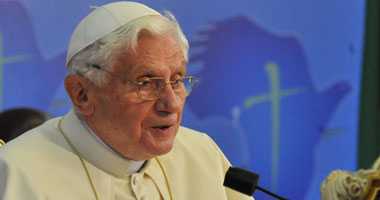
By Polly Toynbee, The Guardian.
Although Cameron and Osborne have been rebranded as Tory moderates, look back to 2010 and you’ll see how much devastation they truly caused
Lest we forget, here is an audit of the state of the country Labour inherits. Pin it up, brand it into public memory so no one can forget the ruination caused primarily by 14 years of crushing, growth-killing, public service-stripping austerity. The purpose of the book I’ve written with David Walker, The Only Way is Up, published today, is to draw a baseline from which to judge all that Labour does from now on: in future, look back on this benchmark to measure how it did.
Curiously, because of the mayhem caused by their riotous successors, a myth has grown that David Cameron and George Osborne were somehow Tory moderates by post-Brexit standards. But Cameron’s nonchalant demeanour, shielded by Nick Clegg’s willing connivance, disguised the extreme nature of an ideological first budget that set the trajectory for all the Tory years. Remember this: only seven weeks into power, Osborne announced a budget in which the balance of spending cuts to tax rises was 77% to 23%. That included £17bn cut from government departments; £11bn cut from benefits; a triple-lock rise for pensioners while freezing child benefit; freezing public sector pay; the lowest-ever real-terms increase in NHS funding; and petty meanness such as ending health in pregnancy grants and cutting maternity grants beyond the first child, while reducing corporation tax and raising the threshold for national insurance paid by employers. It set the tone for the years to come.
Labour should note this right now: Cameron and Osborne used their first weeks to hammer home the lie that the global bankers’ crash was somehow caused by Gordon Brown’s overspending. Brown and Alistair Darling were credited with having dashed to stop banks failing, just 24 hours from there being empty ATMs. Osborne’s devilishly ingenious phrasing fixed the idea that Labour had “maxed out the nation’s credit card” and “failed to fix the roof when the sun was shining”. That adeptly dishonest fiction was embedded before Labour got on to the front foot to refute it.
That’s a lesson for Labour: be just as political in pounding out the truth that Britain’s economy was slowest to recover from the crash among comparable nations such as France and Germany, is due to those disastrous cuts, as well as to Brexit and the economic policies of Thatcher’s children who exceeded her anti-Keynesianism, cutting just when state spending was most needed. Labour has to compensate for lacking the mighty Tory press and well-financed rightwing thinktanks that spread the 2010 fabrication that Brown had overspent and cuts were prudent common sense. (The Sun’s grudging last-minute support for Labour won’t last: Murdoch never backs losers at election time.)
Starmer’s government is keeping up a heavy cannonade about the dire state of everything left by the scorched-earth Tory years: it started with its reaction to inheriting overflowing prisons, a broken NHS and, as the new chancellor said of the economy, the worst inheritance of any government since the second world war. Labour should make instant use of the shocking Department for Work and Pensions revelation that 1.6 million children are hit by the two-child benefit cap, and that number is rising fast. Keep reminding the public why they voted so determinedly to throw the Tories out, with more than half of people happy for spending increases even if it meant personally paying more tax. Keep fresh in public memory what the cuts did to the fabric of British life.
In our 2010 book The Verdict, we audited Labour’s 13 years in government in the same way, recording what it did, which of its many programmes worked well and which less so. Evidence for the benefits of Sure Start, uprooted by the Tories, keeps coming in as research from the Institute for Fiscal Studies finds children from poor families who grew up near a Sure Start centre are now doing better at GCSEs than those living further away. Evaluations already showed those children at age five improving their language, communication, numeracy, social and emotional development.
That evidence calls for Labour to restart it. Labour had eradicated almost half of child poverty by 2010, as part of its goal to abolish it altogether by 2020. We followed the new deal for communities through its decade and the child trust fund that was axed before evaluation, among plentiful social innovations. We marked numeracy and literacy improvements, and an NHS reaching its best.
Here are some of the contrasts. Under Labour, infant mortality fell in England and Wales, but rose under the Tories. The Conservatives cut the number of health visitors and funding for social workers, as well as benefits and school budgets, draining the curriculum of arts and sports, closing libraries and swimming pools, selling sports fields, phasing out BTecs and impoverishing further education colleges, and leaving some universities on the brink of bankruptcy. All this needs recording. Labour can’t fix everything, everywhere all at once, so it needs to make sure people know where the blame lies and why.
The public was not distracted by the relentless Tory culture wars: the BBC retains great support, despite years of assault and battery by those who loathe its existence even more than its supposedly biased content. The right’s attempt to take over the board of the much-loved National Trust, claiming it was too “woke”, foundered on first contact with reality, with not one of the rightwing candidates put forward elected by its huge middle-England membership. The days of Nadine Dorries as the anti-culture secretary are replaced with the earnest Lisa Nandy, who is committed to culture as a national unifier. Osborne, who massacred the arts and sports pitilessly, impoverishing museums and galleries, seized the plum job presiding over the British Museum. No more arts jobs for cronies from now on.
Here’s an extraordinarily good omen: our last chapter in the new book indulges in imagining how Britain might feel by 2030. We begin with a randomly picked fantasy: a first night re-opening of the Oldham Coliseum, which was closed as a result of cuts from Arts Council England last year. In our joyful scene, local campaigners such as Julie Hesmondhalgh and Maxine Peake are celebrating the recovery of the old theatre where Bernard Cribbins was apprenticed: this was just one of many imaginary symbols for a Labour renewal. But suddenly, life imitates fiction: within days of the election, it has actually happened. Of course, this will have been in the works for a long time, but that the theatre has been saved has left Hesmondhalgh “in a little bit of a state of disbelief”, while Nandy welcomes its revival as a “shining example of the kind of cultural assets that local communities are so committed to protecting”. That feels like an augury that our other imaginings might actually happen. Yes, the only way really is up.





